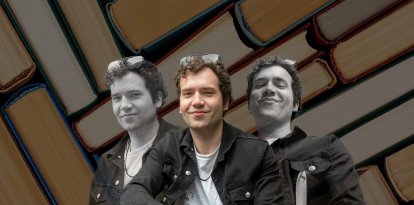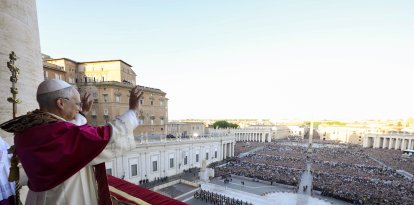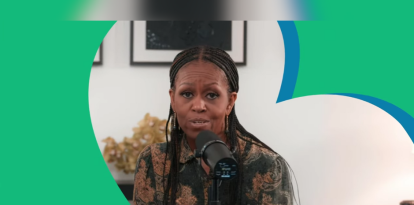Today it is more necessary than ever to save Christmas. Here's how we do it
Christmas is a pillar of our culture, and remembering it, celebrating it and meditating on it is not just necessary, but obligatory.

Today it is more necessary than ever to save Christmas. Here's how we do it
Chesterton wrote in "The Everlasting Man" that every Western man, atheist or religious, has a coincidental relationship with Christmas which is impossible to suppress or forget. Even he who most despises religion, the most unfriendly, cannot dissociate God from maternal tenderness, humble devotion or the childlike innocence innate to the universal scene of the birth of Christ.
You don't have to be a Christian by practice. Chesterton spoke of psychological Christianity, from which very few of us can escape. So, deep down, in the face of the unbearable and dangerous secularism in the world, there was hope. It resided not in our beliefs, but in our culture—which, paradoxically, was nourished by belief.
But the tremendously optimistic observation from the great British writer does strike a chord in modernity. From the hearts of our Western society, such as London, Paris, New York, Brussels or Madrid, to the cradle of Christianity itself, Bethlehem, the essence of Christmas has been blurred, to the point that this Christmas, the Palestinian authorities of Bethlehem, who control the once Christian city, decided to cancel the celebration of the Birth of the Son of God for political reasons.
Two years ago, the European Commission, pandering to multiculturalism, identity and extreme sensitivity, recommended, in a guide, to avoid expressions of celebration that contain the word "Christmas" and reduce everything to "happy holidays." Due to the outraged reaction of the people, the European Union decided to withdraw this recommendation from its guidelines.
Good intentions, in this case, are paving the way for the foundations of Western culture to collapse.
This is not a hysterical exaggeration. This diagnosis was what prompted the writer and activist Ayaan Hirsi Ali to leave atheism behind to embrace, this winter, Christian culture. As she wrote in an essay, the greatness of Western society lies in its Judeo-Christian values, today threatened by the accelerated advance of adversaries, such as communist China, Putin's Russia or fundamentalist Islam, which aspire to destroy what we are.
Partly for pragmatic reasons and partly for spiritual ones, Ayaan Hirsi Ali concluded that to confront such formidable enemies, secular tools are not enough. The return to tradition, attachment to culture, values and religion have become essential resources to protect Western society.
In the face of a secular cultural drift, completely detached from traditions, I recall the "A Charlie Brown Christmas" special, premiered on CBS on Dec. 9, 1965, and broadcast every year until its inclusion in the Apple TV catalog in 2021.
The Christmas season is not an easy time. Traditionally about celebration and necessarily about happiness, many are invaded by nostalgia for what was, what should be or for what will never be. It's supposed to be a time of joy and gathering, but for many it's the opposite: 38% of people, according to the American Psychological Association, suffer from depression during the Christmas season. The reasons are many, from family and economic pressure to sadness due to personal issues.
I say all this because the Charlie Brown special begins by addressing this exact discussion: young Charlie Brown is depressed as Christmas is beginning. It disturbs him to see the Christmas spirit around him and not relate to anything. Charlie is terrified by how his friends only think about Christmas from an extremely materialistic perspective. For him, Christmas isn't about gifts, fake aluminum trees or decorating contests. But he feels alone and thinks that maybe he is the problem.
Little by little, he realizes that he is right, that his depression, due to not being able to specify what Christmas is really about, is an authentic stimulus that is saving him from modern superficiality.
To help cure his depression, his friend, Lucy, recommends that Charlie Brown get involved in some Christmas activities and invites him to be the director of the school Christmas play.
Charlie Brown is enthusiastic and assumes his role with rigid responsibility. His discipline and romanticism contrasts, however, with the frivolity of the rest of his friends, who expect the work to be as commercial as possible. After fighting against reality, Charlie Brown concludes that, to make the work more authentic, a truly Christmassy element must be incorporated, such as a tree to decorate.
He goes to the store and, full of all the synthetic, laminated, pink trees, Charlie Brown chooses a worn-out, scrawny little tree. Upon returning to the theater, however, he finds himself mocked and rejected by his friends, who consider him "stupid" and "hopeless" for not even being able to choose a worthy tree—that is, pompous and crude—for the play.
Sad and depressed, Charlie Brown questions everyone, asking if anyone really knows what Christmas is all about. And Linus, the only sentimental boy in the group, proceeds to quote "The Annunciation of the Shepherds," the evangelical episode of Saint Luke:
"And there were in the same country shepherds abiding in the field, keeping watch over their flock by night. And lo, the angel of the Lord came upon them, and the glory of the Lord shone round about them: and they were sore afraid. And the angel said unto them, 'Fear not: for behold, I bring unto you good tidings of great joy, which shall be to all people. For unto you is born this day in the city of David a Savior, which is Christ the Lord. And this shall be a sign unto you; Ye shall find the babe wrapped in swaddling clothes, lying in a manger.' And suddenly there was with the angel a multitude of the heavenly host, praising God, and saying, 'Glory to God in the highest, and on earth peace, good will toward men.'"
An aside to talk about lost tradition (or greatness): it is notable that in a commercial special, one of the most popular cartoons of the time and broadcast on one of the main channels in the United States, a character, in this case a child, recites a biblical text.
"That's what Christmas is all about, Charlie Brown," Linus reminds him after reciting the Annunciation in the theater.
Undeterred, Charlie is determined to save Christmas and prevent commercialism from damaging it, so he takes his emaciated tree home to decorate. The group, disconcerted by Linus' recital and moved by Charlie Brown's determination, realizes the injustice that had been committed and decides to follow the boy with his stunted tree.
Upon reaching where he hopes to plant and decorate the tree, Charlie puts a Christmas ornament on the top, but due to the weight and the fragile trunk of the tree, it gives way. Charlie, believing that he had just killed his little tree, internally reaffirms the impression that he believes his friends have of him, and walks away sadly: "Everything I touch gets ruined!"
Now his friends, willing to help Charlie Brown, come to where the one-eyed tree is, repair it, Linus supports it, and they decorate it perfectly. It is already an idyllic Christmas tree. Around the tree, all the children begin to sing, "Hark! The Herald Angels Sing," the Christmas carol that glorifies the "newborn king."
Charlie listens to them and, upon returning to where his renovated tree now stands, all his friends yell "Merry Christmas, Charlie Brown!" and the entire group, including Charlie, continues singing the Christmas carol that announces and celebrates the birth of God.
The message is clear: Christmas is about friends, loved ones, good deeds and everything around the celebration of the birth of Christ. Recognizing that, there is no way for the season to become a flurry of frivolity, which really masks an unbearable nostalgia.
In the end, the Christmas season is a pillar of our culture, and remembering it, celebrating it and meditating on it not just necessary, but obligatory in order to protect our civilization. Today, more than ever, it is urgent. So, there's still plenty of time to watch the "A Charlie Brown Christmas" special—moreover, adorned by exceptional and beautiful music by jazz pianist Vince Guaraldi.

























